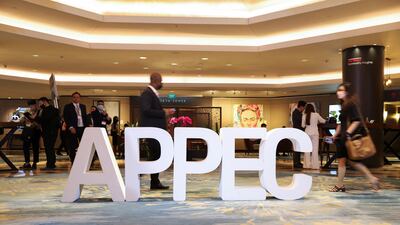As the world’s biggest oil and gas traders descended on Singapore this week for one of their industry’s top conferences, it was not just the mask-less crowds and the packed late-night parties that reminded them of times past.
After years in the shadow of fast-growing clean energy, hydrocarbon merchants returned to the city with a renewed sense of purpose.
Amid a global energy crisis and upended trade flows as a result of Russia’s invasion of Ukraine, traders are playing a crucial role securing supplies in a world desperate for affordable fuel.
As more than a hundred commodity executives joined the queue outside Zouk, a famous Singapore nightclub where the broker Ginga Petroleum was hosting a party during the Asia Pacific Petroleum Conference, there was a sense that the industry some critics describe as “sunset” has found its feet again.
Existential concerns about the future have been set aside for now. In their place were affirmations that fossil fuels are still very much a backbone of the modern economy even as the world slowly shifts towards a carbon-free system.
“Energy security is number one, price is number two, sustainability is number three,” said Russell Hardy, chief executive of Vitol Group, the world’s top oil trader by volume.
“That’s the short-term set of priorities. The long set of priorities haven’t changed — they’re the other way around.”
The global energy industry has had a tumultuous year since Russian President Vladimir Putin sent tanks into Ukraine in February.
The price of Brent crude immediately surged to a multiyear high and stayed volatile even as it erased all of its gains in the ensuing months. Meanwhile, global prices for natural gas and coal set new highs.
For physical suppliers of crude and fuels, dislocations caused by Russian sanctions are creating new trade flows and opportunities that will extend a profitable period for companies from Vitol to BP.
More exports from the Baltic and Black Sea will move to Asia before new restrictions planned for December 5, setting the stage for a shake-up.
Still, when you bring thousands of energy traders together, you are bound to get some stark differences of opinions and 2022 was no different.
While officials from Indonesia and India talked about their inability to ignore cheap Russian supplies as they strive to ensure dependable flows, those seeking clarity on China’s recovery were disappointed as few from the mainland were present at networking events.
Others called for Opec+ to curb production or risk sending markets into contango.
Some traders fretted that Russia’s invasion of Ukraine could trigger more supply disruptions this winter, which could send prices soaring towards record highs. Others wondered whether a European recession and China’s Covid-zero approach would derail consumption.
Oil is now trading below where it was before the war because of macroeconomic headwinds such as the stronger US dollar and recessionary concerns, said Saad Rahim, chief economist at Trafigura Group.
But that does not reflect fundamentals and factors that could prompt a demand surge and overwhelm a market with thin spare capacity — for example, the possible end of Covid-zero measures and a return of international travel in China, or the US taking a pause on tightening its monetary policy.
Another hotly debated theme was a US-proposed price cap on Russian oil, which led to a lively panel discussion between representatives from Vitol, consultant FGE and the US Treasury.
Although details about the proposal remain scant, the US is aiming to ensure that global markets are not starved of an important supply source even as it tries to erode Moscow’s energy revenues.
FGE chairman Fereidun Fesharaki called the cap “impractical, unnecessary and a bad idea”, while Vitol’s head of research Giovanni Serio highlighted the complexities of trying to model its impact. He did, however, say the cap could act as a “potential relief valve” for global oil markets, which would otherwise experience a dramatic price surge should Russian supplies be cut off.
Keeping the heaters running across the Northern Hemisphere this winter and next will require a lot of traditional oil and energy supplies, even as countries pursue a net-zero future that will be crucial for future generations.
What will be keenly watched in the months and years to come will be the profits of oil and energy companies, their investment patterns and how they will balance funding traditional fossil-fuel assets against renewable projects.


